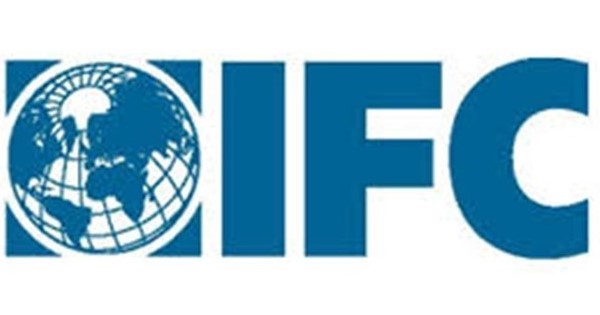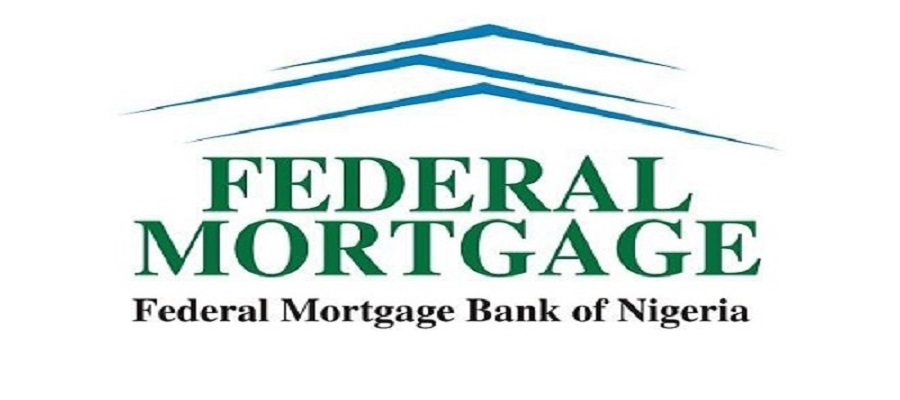E-Financial
IFC, UN to Support Stock Exchanges in Advancing SDGs and Climate Efforts

IFC, a member of the World Bank Group, and the United Nations Sustainable Stock Exchanges (UN SSE), announced an expanded partnership to support stock exchanges and companies in emerging markets in addressing sustainability-related issues, including developing climate and biodiversity disclosure guidance, and advancing gender equality.

The 2030 target for the Sustainable Development Goals (SDGs), the climate crisis, rising inequality, and efforts to build back better following the COVID-19 pandemic have spurred a growing demand for sustainable finance.
The IFC – UN SSE collaboration aims to help stock exchanges address this demand by providing technical assistance and guidance to exchanges on sustainability issues and climate change.
The program will help stock exchanges develop sustainability reporting guidance and tools for companies, which improves transparency and investor confidence and increases opportunities for companies in emerging markets to access capital.
Additionally, the program will focus on efforts to improve women in business leadership roles and strengthen the sustainability practices of small and medium enterprises. It will also support the market adoption and implementation of sustainable finance products, including gender bonds, green bonds and sustainability-linked bonds.
“There is a clear need to improve sustainability and climate disclosure requirements to spur investment. By connecting companies, investors and policy makers, stock exchanges can help create resilient and sustainable capital markets in a way few other actors can,” said Mary Porter Peschka, Director, Sustainability and Gender Solutions, IFC. “IFC looks forward to its continued efforts with UN SSE to help stock exchanges in emerging markets become leaders on sustainability and transparency.”
The expanded program will leverage results to date from the IFC – UN SSE collaboration, which has helped 15 stock exchanges and regulators launch national ESG reporting guidelines, including the most recent Johannesburg Stock Exchange Sustainability and Climate Disclosure Guidelines.
Following the recommendations of the Task Force on Climate-related Financial Disclosures (TCFD), IFC, UN SSE and the Carbon Disclosure Project (CDP) have delivered climate disclosure trainings, helping to improve the knowledge of over 7000 participants in 27 countries. The program also recently issued updated guidance on how stock exchanges can advance gender equality.
“We are pleased to strengthen our collaboration with IFC. Since we first signed our Exchange of Letters in 2018, the level of collaboration between UN SSE and IFC has increased significantly.
“Our collaboration efficiently leverages each other’s complementary strengths and ultimately makes us better positioned to serve our beneficiaries and achieve the SDGs established by UN member States,” said Anthony Miller, Coordinator, UN SSE.
IFC’s Beyond the Balance Sheet Disclosure and Transparency Toolkit, supported by the Swiss State Secretariat for Economic Affairs (SECO), and the UN SSE’s Model ESG Reporting Guidance and Model Guidance on Climate Disclosure underpin the efforts of the collaboration, providing guidance on integrating financial and non-financial information in corporate reporting, communications, and disclosure practices. As a result, the program promotes a transparent culture and more responsible investments in emerging markets.
E-Financial
SERAP Demands Answers over Missing N3 Trillion in CBN Account

Socio-Economic Rights and Accountability Project (SERAP) has urged Mr. Olayemi Cardoso, governor of the Central Bank of Nigeria (CBN), “to promptly account for and explain the whereabouts of the missing or diverted N3 trillion of public funds, as documented in the recently published 2022 annual report by the Auditor-General of the Federation.”

SERAP said the grave allegations are documented in the latest annual report published by the Auditor-General on 9 September 2025.
SERAP urged him to “identify those responsible for the missing or diverted public funds and hand them over to the Independent Corrupt Practices and Other Related Offences Commission (ICPC) and the Economic and Financial Crimes Commission (EFCC) for further investigation and prosecution.”
SERAP also urged him “to ensure the full recovery and return of any missing public funds to the treasury without further delay.”
In the letter dated 15 November 2025 and signed by Kolawole Oluwadare, SERAP, deputy director the organisation said: “These grim allegations by the Auditor-General suggest grave violations of the public trust, the provisions of the Nigerian Constitution 1999 [as amended], the CBN Act, and anticorruption standards.”
SERAP said, “These grave violations also reflect a failure of CBN accountability more generally and are directly linked to the institution’s persistent failure to comply with its Act and to uphold the principles of transparency and accountability.”
According to SERAP, “These violations have seriously undermined the ability of the CBN to effectively discharge its statutory functions and the public trust and confidence in the bank. The CBN ought to be committed to transparency and accountability in its operations.”
The letter, read in part: “According to the Auditor-General, the CBN in 2022 failed to remit over N1 trillion [N1,445,593,400,000.00] of ‘the Federal Government’s portion of operating surplus’ into the Consolidated Revenue Fund (CRF) account.”
“The Auditor-General fears that the money may have been ‘diverted.’ He wants the money recovered and remitted to the treasury.”
“The CBN in 2022 failed to recover over N629 billion [N629,040,000,000.00] paid to ‘unknown beneficiaries’ as part of the Anchor Borrowers’ Programme, a programme ‘meant to support farmers to ensure sustainable food production in the country.’”
“But ‘the numbers of beneficiaries who collected the money are unknown.’ The CBN has also failed to ‘recover the money.’ The Auditor-General fears ‘the money may have been diverted’, which could have ‘contributed to the difficulty in sustaining food security in the Nation.’”
“He wants the money recovered and remitted to the treasury.”
“The CBN has also failed to recover over N784 billion [N784,410,108,864.47] ‘being 32 unpaid, overdue loans and interventions disbursed by the Bank between 2018 and May 2022.’”
“The Auditor-General said ‘there was no evidence that the Bank was doing enough to recover the loans/interventions, which ought to have been paid.’ He wants the money recovered and remitted to the treasury.”
“The CBN in 2022 also spent over N125 billion [N125,374,000,000.00] ‘on questionable intervention activities.’ The CBN claimed it spent the money ‘on intervention activities in connection with national security, the federal government, state securities, armed forces and to build the capacity of the financial sector’.”
“But the Auditor-General is concerned that the money may have been spent ‘without the approval of the National Assembly.’ There was also no document to ‘support the expenditure.’”
“The ‘expenditure also may not have been in the public interest and consistent with the objectives of the CBN in section 2 of the CBN Act.’ The Auditor-General fears the money may have been ‘diverted.’ He wants the money recovered and remitted to the treasury.”
“The CBN in 2022 also ‘unjustifiably’ spent over N1 billion [N1,792,769,160.00] to buy 43 operational vehicles for the Nigeria Immigration Service (NIS). The ‘spending is unjustified because there is no connection with buying operational vehicles for the NIS and the objectives of the CBN as stated in section 2 of the CBN Act.”
“The NIS also ‘failed to provide any evidence to show that the vehicles were actually supplied and delivered.’ There ‘were also no procurement and payment records or documents.’ The Auditor-General fears the money may have been ‘diverted’. He wants the money recovered and remitted to the treasury.”
“The CBN also awarded 43 contracts for over N189 billion [N189,50,066,756.73] but ‘the contractors deliberately delayed completion of these contracts’ by seeking ‘extension of the completion period.’”
“The contractors then ‘requested for variation of contracts due to extension of completion period.’ Following the request, the CBN paid the contractors over N9 billion [N9,270,849,691.61] ‘irregular variation of contract price.’”
“There ‘were no relevant procurement documents such as contract files, procurement records, and payment vouchers’ for the payment. The Auditor-General fears ‘the money may have been diverted’ and the projects may have been abandoned.’ He wants the money recovered and remitted to the treasury.”
“The Katsina state branch of the CBN also failed to recover over N90 million [N90,163,610.00] being ‘outstanding loans and interventions disbursed to 33 small and medium enterprises during Covid 19 in 2020.’”
“The Auditor-General fears ‘the money may have been ‘diverted’ or ‘mismanaged’. He wants the money recovered and remitted to the treasury.”
“We would be grateful if the recommended measures are taken within 7 days of the receipt and/or publication of this letter. If we have not heard from you by then, SERAP shall take all appropriate legal actions to compel you and the CBN to comply with our request in the public interest.”
“Paragraph 708 of the Financial Regulations 2009 provides that, ‘on no account should payment be made for services not yet performed or for goods not yet supplied.’”
“Section 15(5) of the Nigerian Constitution requires public institutions to abolish all corrupt practices and abuse of power.” Section 13 of the Constitution imposes clear responsibility on the CBN to conform to, observe and apply the provisions of Chapter 2 of the constitution.”
“Paragraph 3112(ii) of the Financial Regulations 2009 provides: ‘Where a public officer fails to account for government revenue, such officer shall be surcharged for the full amount involved and such officer shall be handed over to either the EFCC or the ICPC.’”
“Nigerians have the right to know the whereabouts of the public funds. Taking the recommended measures would advance the right of Nigerians to restitution, compensation and guarantee of non-repetition.”
“The Nigerian Constitution, Freedom of Information Act, and the country’s anti-corruption and human rights obligations rest on the principle that citizens should have access to information regarding their public institutions’ activities.”
E-Financial
SEC Partners FMBN Partner on Non-Interest Mortgage Framework

Securities and Exchange Commission (SEC) and the Federal Mortgage Bank of Nigeria (FMBN) have announced a strategic collaboration to develop a robust Non-Interest Mortgage (NIM) ecosystem.

This significant move is part of efforts to address the nation’s massive housing deficit and deepen financial inclusion.
At a high-level meeting in Abuja of Friday, both parties agreed to create and regulate viable Sharia-compliant financing structures that will enable millions of Nigerians, particularly those excluded from conventional interest-based loans, to access affordable homeownership.
With Nigeria’s housing deficit estimated to be over 28 million units, the initiative is being hailed as a potential game-changer.
It directly addresses a key barrier to homeownership: the affordability and religious compliance of mortgage products for a significant segment of the population.
The successful implementation of this framework is expected to not only reduce the housing deficit but also stimulate the construction industry, create jobs, and foster greater financial inclusion, ultimately contributing to national economic growth.
Unlike conventional mortgages that charge interest, non-interest financing is based on principles of risk-sharing, asset-backing, and equitable returns. The models under consideration include:
Musharakah (Diminishing Partnership): The bank and the customer jointly purchase a property. The customer gradually buys out the bank’s share through periodic payments, eventually becoming the sole owner.
Ijara (Lease-to-Own): The bank buys the property and leases it to the customer for a fixed period. A portion of the rental payments goes towards the eventual ownership transfer.
Murabaha (Cost-Plus Sale): The bank acquires the property and sells it to the customer at a pre-agreed markup, payable in instalments.
Commenting on the development, Mr Emomotimi Agama, director-general of SEC, said his agency would provide the necessary regulatory guidance and framework to facilitate the issuance of Sukuk (imic bonds) and other non-interest capital market products to fund these mortgages.
“Our collaboration with FMBN is pivotal to unlocking long-term financing for the housing sector. By creating a clear regulatory pathway for non-interest mortgage-backed securities, we can attract ethical investors, both domestic and international, to channel funds into this critical area. This will create a virtuous cycle of funding, construction, and ownership,” he stated.
On his part, Mr Shehu Osidi, chief executive of FMBN, said the partnership marks a critical step in fulfilling the bank’s mandate to provide affordable housing for all Nigerians.
“For a long time, a substantial number of our citizens have been unable to participate in the National Housing Fund (NHF) scheme due to the interest-based nature of conventional mortgages.
“This partnership with SEC is a strategic response to that gap. We are committed to developing non-interest mortgage products that are not only ethical and inclusive but also financially sustainable,” he noted.
E-Financial
Banks Lost N3.3Bn to Fraud in Q1 of 2025 – FITC

Nigerian Banks have recorded a N3.3 billion loss to fraudulent activities during the first quarter of 2025, a 603% year-on-year (YoY) increase from N468 million in the first quarter of 2024, according to The Financial Institutions Training Centre (FITC).

This is contained in a September 2025 report by FITC.
In its methodologies, FITC received 73 fraud and forgery submissions from Nigerian banks between January and March 2025.
The highest (25) was in March, which accounted for the highest volume with 25 submissions. Amid this, the total cases reported increased by 7.7% to 12,347 in Q1 2025.
Further breakdown shows that the most frequently reported incidents were tied to computer/web platforms (7,361 cases), mobile transactions (2,875 cases), and POS terminals (1,559 cases).
While computer/web-based fraud emerged as the most financially significant category in Q1 2025, it also accounted for N10.6 billion (47.7%)of the total amount involved in reported cases.
With a total case at over 12,000, the total amount involved surged by 645.4% to N22.27 billion.
The comparison shows that fraudsters are now targeting fewer but higher-value transactions.
This shows that perpetrators are bypassing banks’ systems of flagging volume anomalies and leveraging on their weak detection systems.
On a positive note, the first quarter of 2025 witnessed a reduction in outsider participation in fraud, with reported cases falling by 4.8% YoY to 10,896.
However, staff-related incidents increased with 63 cases recorded in the quarter compared to 47 in Q1 2024.
In addition, 28 employees are currently under investigation, and 23 staff members had their appointments terminated.
According to FITC, the report signals a pivot in fraud tactics and a switch from frequent small-value hits to targeted, high-impact operations. “Fraud is no longer a volume issue; it’s a value game. And staying ahead means thinking proactively and innovatively,” it added.
In terms of channels, card-based fraud accounted for 11,972 cases (N1.6 billion loss) while cash-related fraud accounted for 375 cases (N832.4 million). Also, cheque-related cases were 46, with a loss of (N837.7 million).
The FITC has advised Nigerian banks to strengthen their security protocols and systems to prevent unauthorised access to customer accounts and sensitive information, considering the rising fraud cases.
According to the report, this may involve incorporating measures such as multi-factor authentication, implementing strong encryption techniques, and ensuring regular security updates are in place.
They can also integrate fraud models that weigh transaction context, behavioural history, and device fingerprints.
“Financial institutions must adopt a layered, adaptive, and intelligence-first approach, supported by interbank collaboration, staff accountability, and informed customer behaviour,” it said in the report.
To curtail staff-involved cases and reduce internal risk, financial institutions must deploy role-based access management, ensuring limited data/system visibility per role.
Another corrective measure is the introduction of monthly digital footprints and outlier audits for staff handling high-risk operations.

 Telecom3 days ago
Telecom3 days agoAirtel Nigeria Unveils Smartphone Financing for New Devices

 E-Business3 days ago
E-Business3 days agoKaspersky Introduces Cyber Pathways to Support Career Development in Cybersecurity

 E-Financial3 days ago
E-Financial3 days agoBanks Lost N3.3Bn to Fraud in Q1 of 2025 – FITC

 E-Financial3 days ago
E-Financial3 days agoSEC Partners FMBN Partner on Non-Interest Mortgage Framework

 General News3 days ago
General News3 days agoPaystack Suspends CTO Ezra Olubi Over Alleged Misconduct, Launches Investigation

 General News3 days ago
General News3 days agoLagos Launches Centralised Mental Health Providers Directory

 Telecom3 days ago
Telecom3 days agoSix Students Emerge Abuja Regional Champions in MTN Spelling Bee

 Telecom3 days ago
Telecom3 days agoAFRIFF 2025: Globe Awards Spotlight African Creativity, Honour Wigwe Legacy
















